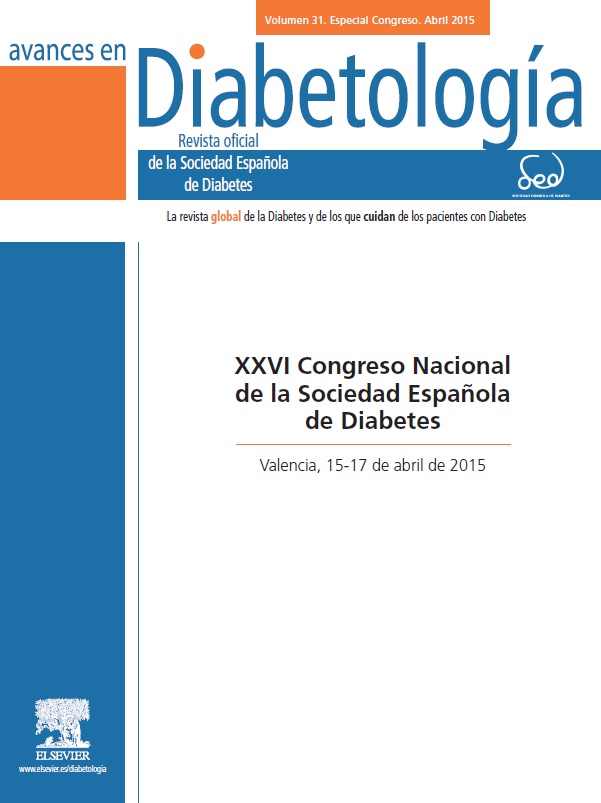P-036. - WHAT ABOUT THE RELEVANCE OF THE EDUCATION PROCESS TO CONTROL DIABETES?
aUniversidade Nova de Lisboa. Portugal. bUniversidad Pablo de Olavide. Sevilla. cUniversidad de Valencia. Valencia. dUniversidade Federal de Alagoas. Alagoas. Brasil.
Diabetes (DM) is a chronic disease that has been growing exponentially in developed countries and, especially, those in development like Brazil. In this sense, the federal government of Brazil establishes in 2002 the Hiperdia Program, a strategy to reduce direct and indirect costs with DM and offer better quality of life for people diagnosed with the disease. One of the main proposals of the Hiperdia Program is to prevent and control the consequences generated by poor control of DM. In addition to conventional treatment, the program provides therapeutic education associated, which is very important to promote empowerment that could drive to a better self-management of pathology. Thereby, therapeutic education makes it one of the most important potential of the program. The aim of the work, still in progress, is to verify the effectiveness of transmission of knowledge on DM to people who are using the services offered by one of the centers of secondary care belonging to the Hiperdia Program. From a broader research project, we perceived the necessity to complement the survey, which consisted solely of instruments validated in the literature, with an additional piece in order to clarify the results. Given the nature of the information sought, we chose the structured interview model, which led to the inclusion of open questions about the nature and consequences of poor control of the disease. We evaluated 108 individuals, adults and elderly, with DM2 (≥ 40 years) living in a small city in Brazil. 58.3% were females, with average age of 60.6 ± 11 years and low school attainment (M = 4.49 ± 3.2 years). For this study we previously checked the cognitive statement by Mini Mental State Exam (M = 23.2 ± 3.8). The results showed that 59.26% of the sample said they did not have knowledge about the nature of DM, 28.7% alluded to the relationship between sugar and blood and only 12.04% explained the hyperglycemia as definition of what would be the DM. With regard to the consequences of pathology we found that 2.77% of respondents had no knowledge, 34.6% had incorrect knowledge and 62.96% answered only with personal experiences and/or symptoms of the pathology. We emphasize that was not identified, according to the categorization used, individuals who recognize the consequences of poor control of DM. Our results suggest the necessity of optimize educational activities for people with DM, considering that educational activities on diabetes are expected in the program legislation as part of the treatment and considering that education is an important element in the development of empowerment that leads to better self-management of the disease.




